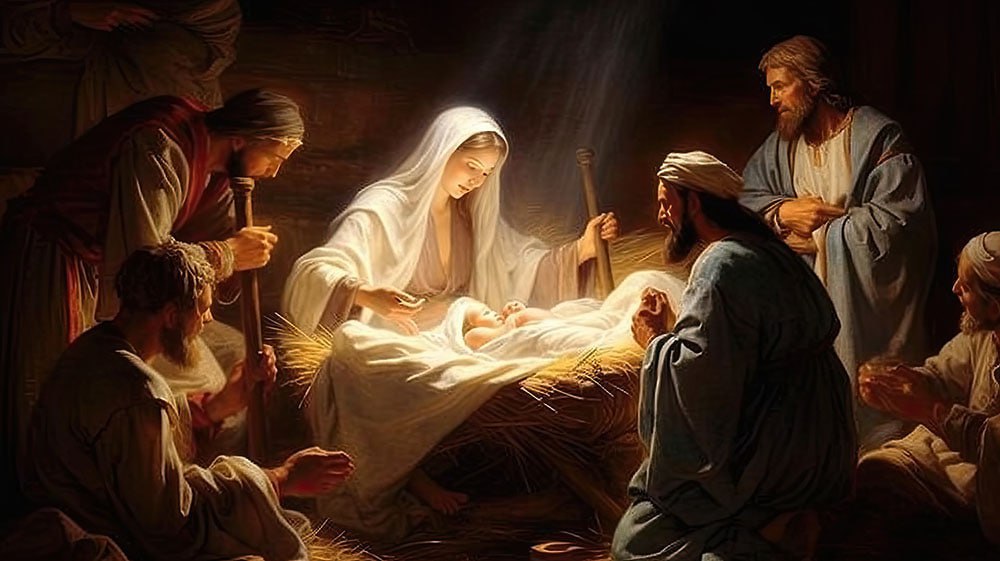"Joy" and "Hark": Christmas Carol Theology
December 19, 2023
By Jubilee College of Music Dean Dr. Merril Smoak
“Joy to the World! the Lord Is Come” and “Hark! the Herald Angels Sing” are two of our favorite Christmas carols that we sing every December as we remember and celebrate the miraculous human birth of Jesus. The words found in both of these Christmas carols are filled with wonderful Christ-centered theology. Both of these texts were originally written as hymns for congregational singing, but today we certainly include them as part of our Christmas carol repertoire. The word “joy” reminds us to celebrate Jesus’ birth with exuberant praise. The word “hark” reminds us to listen closely and pay attention to all of the words that were spoken by the angels at His birth.
“Joy to the World! the Lord Is Come” by Isaac Watts (1674-1748) was published in 1719 in his Psalms of David Imitated Into the Language of the New Testament. Watts believed that if the Old Testament Psalms were to be sung by Christians that the Psalms must be “Christianized” or versified with New Testament, Christ-centered language. “Joy to the World! the Lord Is Come” is Watts’ versification of Psalm 98 verses 4-9. Notice the New Testament language in these phrases:
· the Lord is come
· Let ev’ry heart prepare Him room
· the Savior reigns
· He rules the world with truth and grace
· The glories of His righteousness
· And wonders of His love
It is also interesting to note that Watts used the present tense “is” rather than the past tense “has” in the phrase the Lord is come. This reminds us that Jesus is always present in our current lives and that he is coming again; both joyful realities!
Two phrases in stanza three need an explanation: Nor thorns infest the ground and Far as the curse in found. “The curse” and “thorns infesting the ground” refer to the story of how sin entered the human race through the sin of Adam and Eve as recorded in Genesis 3:17-18. Because this sin infected all of humanity Jesus would one day die upon the cross to pay the penalty for our sins. Thus Watts responds in stanza four with a joyful threefold response about Jesus’ love:
And wonders of His love,
And wonders of His love,
And wonders, wonders, of His love.
Therefore, we must sing: Joy to the world! the Lord [Jesus] is come!
“Hark! the Herald Angels Sing” by Charles Wesley (1707-1788) is a superb example of a hymn and Christmas carol written in eighteenth century English language. It was first published in 1739 in Wesley’s Sacred Hymns and Poems. As suggested in the title these words are all about the angel’s announcement of Jesus’ birth to the shepherds as recorded in Luke chapter two. The first two phrases of stanza one are repeated as a refrain at the end of each of the three stanzas:
Hark! the herald angels sing,
“Glory to the newborn King!”
Like Watts’ verses Wesley’s words are also filled with New Testament and Christ centered phrases:
· God and sinners reconciled
· Christ the everlasting Lord
· Hail the Son of Righteousness
· Light and life to all He brings
· Born that man no more may die
· Born to give them second birth
Three of Wesley’s phrases remind us of the Old Testament prophecies about the coming of Jesus spoken by the prophet Isaiah (7:14 & 9:6):
· Offspring of a Virgin’s womb
· Jesus, our Emmanuel
· Hail the heav’n-born Prince of Peace
Incarnation theology and Trinitarian theology are mentioned in these two phrases:
· Veiled in flesh the Godhead see
· Hail the incarnate Deity
Through Wesley’s words we join our voices with the angelic host and sing: Glory to the [our] newborn King [King Jesus]!
As Christians living in the 21st century we must continue to proclaim the theological truths surrounding the birth of Jesus in Bethlehem. Our Christmas carols must be saturated with Christ centered words as exemplified in Watts’ “Joy to the World! the Lord Is Come” and Wesley’s “Hark! the Herald Angels Sing.” With joy we sing these words and harken to the truths revealed in the angel’s message to the shepherds. Do not wait. Now is the time to sing these two Christmas carols!
For more Olivet University News visit www.olivetnews.com
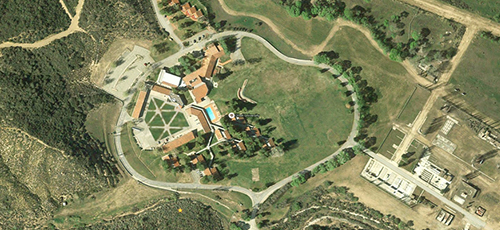
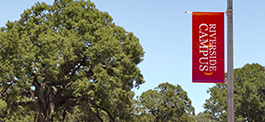
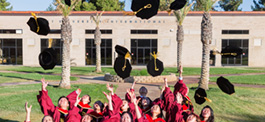
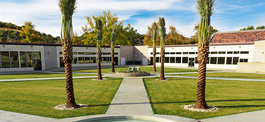
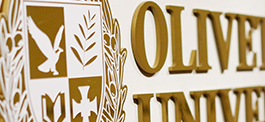
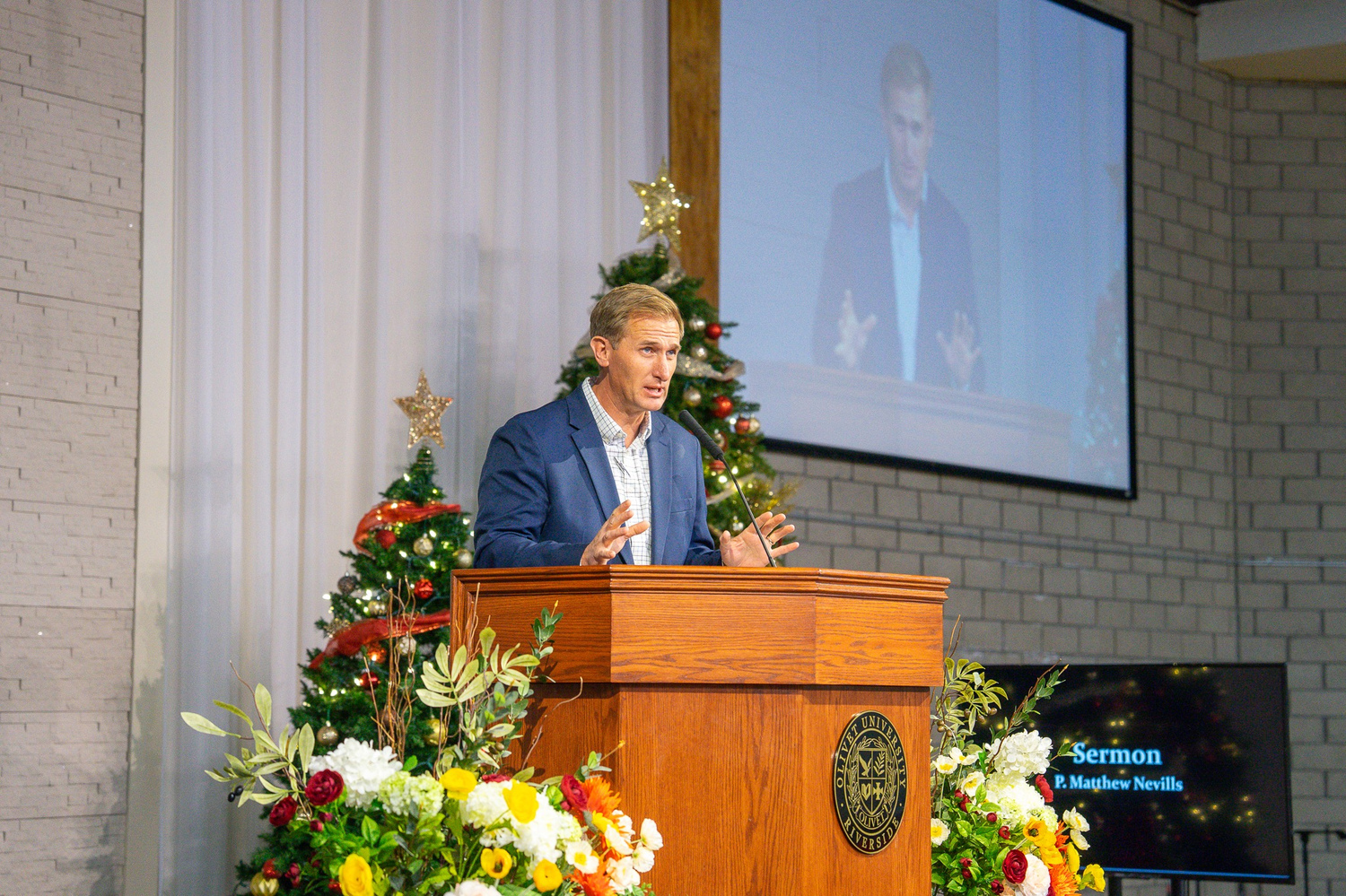
 Christian Attorney Dr. Nathan Adams Encourages OU Students on Faith and Vocation
Christian Attorney Dr. Nathan Adams Encourages OU Students on Faith and Vocation Student Volunteers Join Local Community in Heartwarming Thanksgiving Dinner Return
Student Volunteers Join Local Community in Heartwarming Thanksgiving Dinner Return